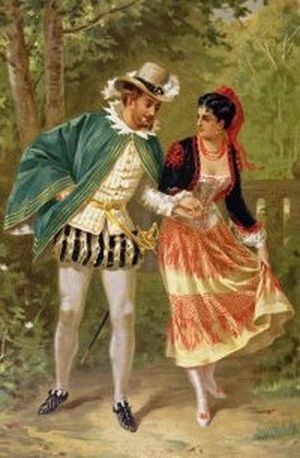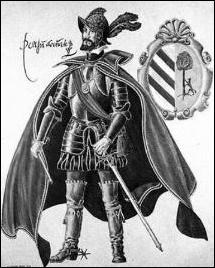|

Гипотезы:
ТЕОРИЯ КУЛЬТУРЫ
Э.А. Орлова. Антропологические основания научного познания
Дискуссии:
В ПОИСКЕ СМЫСЛА ИСТОРИИ И КУЛЬТУРЫ (рубрика А.Я. Флиера)
А.В. Костина, А.Я. Флиер. Тернарная функциональная модель культуры (продолжение)
Н.А. Хренов. Русская культура рубежа XIX–XX вв.: гностический «ренессанс» в контексте символизма (продолжение)
В.М. Розин. Некоторые особенности современного искусства
В.И. Ионесов. Память вещи в образах и сюжетах культурной интроспекции
Аналитика:
КУЛЬТУРОЛОГИЧЕСКИЕ РАЗМЫШЛЕНИЯ
А.Я. Флиер. Социально-организационные функции культуры
М.И. Козьякова. Античный космос и его эволюция: ритуал, зрелище, развлечение
Н.А. Мальшина. Постнеклассическая парадигма в исследовании индустрии культуры России: Новый тип рациональности и системы ценностей
Н.А. Хренов. Спустя столетие: трагический опыт советской культуры (продолжение)
Анонс следующего номера
|
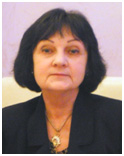
Шапинская Е.Н.
Любовь как властное отношение:
Дон Жуан как архетипичный герой в пространстве репрезентации [1]
Аннотация: В статье рассмотрена любовь как отношение власти и ее репрезентация в различных социокультурных контекстах и художественных формах. Выделены основные типы господства/подчинения применительно к отношениям любви, показано, как смысл этого отношения меняется в зависимости от контекста. Выделены основные черты постмодернистской культуры, важные для понимания современной интерпретации отношений власти/подчинения в любви. Позиция автора проиллюстрирована исследованием образа Дон Жуана как персонажа литературных и музыкальных произведений. На примере анализа трех репрезентативных постановок оперы Моцарта «Дон Джованни» прослежена связь политики репрезентации с философскими течениями и культурными доминантами разных эпох.
Ключевые слова: Власть, господство, подчинение, контекст, репрезентация, культура художественная, искусство, интерпретация
Трудно дать определение любви; о ней можно лишь сказать, что для души −
это жажда властвовать, для ума - внутреннее сродство, а для тела − скрытое и
утонченное желание обладать, после многих околичностей, тем, что любишь.
Ф. де Ларошфуко
Любовь и власть: формы господства и подчинения
в различных культурных контекстах
Одним из важных аспектов любви является ее взаимоотношение с властью, которая всегда в той или иной форме присутствует в любовных отношениях. «Обычным местом в разговоре людей, умудренных жизненным опытом, является определение любви как желания получить власть над определенным индивидом» [2]. Среди многочисленных форм и проявлений власти в любви наиболее известным в истории и важным в социокультурной жизни является гендерно обусловленная власть, основанная на столь базовой оппозиции человеческой культуры как мужское/женское (или, в гендерной терминологии, маскулинное/фемининное).
Отношение господства/подчинения в любви носит различный характер в зависимости от характера отношения. Согласно М.Веберу, существует три типа господства, которым соответствуют различные субъектно-объектные отношения в любви. Первый из них – «легальный» − основан на соображениях закона и целерациональном действии. Этот принцип воплощается в признании отношения любви легитимным или запрещенным в зависимости от социокультурных установок эпохи. Второй тип господства – традиционный, основанный на вере «не только в законность, но даже в сакральность издревле существующих порядков и властей». Этот «патриархальный» тип господства по своей структуре сходен со структурой семьи, что делает его более устойчивым и прочным, чем другие виды господства. Третьим типом, выделяемым Вебером, является «харизматическое господство», которое представляет собой полную противоположность «традиционному». Он основан на аффективном типе социального действия. Вебер подчеркивает авторитарный характер харизматического господства, так как авторитет харизматика базируется на его силе – только не на грубой физической (во всяком случае, те только на ней), а на силе дара, делающего харизматика доминирующим субъектом, что не имеет рационального объяснения.
Исследователи феминистского направления утверждают тесную связь между мужским началом и властью, которая коренится в природе, разделившей человечество по половому признаку. «Власть мужчины – это первое метафизическое утверждение самости… Эта самость не просто переживается субъективно. Она защищается и традицией, и законодательством, она провозглашается в искусстве и литературе, она задокументирована историей, она поддерживается при распределении материальных благ» [3]. Исследуя природу мужского превосходства, А.Дворкин определяет природу мужской самости как захватническую, выражающуюся «в абсолютном праве брать все, в чем она нуждается для поддержания себя» [4]. Проявления власти мужчины в отношении женщины могут быть, согласно А.Дворкин, разными – физической силой, которая на протяжении веков была мужской привилегией, способностью терроризировать, вызывать страх, воинственностью, утверждением креативности как мужского начала, легитимацией экономического господства. Сплетение этих типов власти выражается в понятии, введенном в культурологический дискурс А.Грамши − «гегемония», которая не признает первостепенного значения силы, но основана на тех преимуществах, которые дают религия, экономические структуры, рутины повседневности, масс медиа и т.д. «Несмотря на то, что гегемония не соотносится с преимуществом, основанном на силе, она часто сопутствует ему. Физическое или экономическое насилие поддерживают доминантные культурные модели, а идеологии оправдывают тех, кто обладает физической силой закона и порядка. Связь между гегемонной маскулинностью и патриархальным насилием тесная, но не простая» [5].
Все типы власти присутствуют в любовных отношениях, причем в различные эпохи та или иная власть может выходить на первый план в зависимости от культурных установок. Наиболее универсальным в любовных отношениях видом власти является не власть-принуждение, а харизматическая власть, создающая для объекта любви ощущение добровольности его плена, что только усиливает власть субъекта (мужчины или женщины, которые могут меняться местами в оппозиции, не отменяя присущего бинаризму неравенства). Хотя женщина не один раз в истории и культуре показывала свое превосходство и становилась «лидером» или инициатором в любовных отношениях, сторонники феминизма утверждают, что любовь не только идет вразрез с интересами женщин – «в любви нет ничего, кроме отношения, основанного на доминации мужчины, которая обманно наряжается в одежды, сулящие блага женщине. Без этих одежд не останется ничего из того, что мы называем любовью» [6]. В любви всегда присутствует стремление к контролю желаний Другого, к управлению этими желаниями по своей воле. Отсюда возникает весьма распространенное понимание любви как желания обладать Другим. Этот аспект любви может стать пугающим, опасным, несущим на себе проклятье, таящим в себе трагизм и обреченность любовных отношений. Стремление подчинить себе возлюбленного/возлюбленную или воссоздать его заново по собственной воле нередко рассматривается как сущность любви, в основе которой лежит отношение господства/подчинения. «Ничто так не сближает молодую чету, − пишет Гёте, − гармонически созданную друг для друга природой, как любознательность девушки и готовность юноши поделиться с ней своими знаниями. Отсюда возникает глубокая и радостная связь: она видит в нем творца своего духовного мира, он же в ней – созданье, обязанное своим совершенством не природе, не случаю и не одному лишь чувственному влечению, а их обоюдной воле» [7].
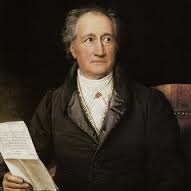
Для Гёте это отношение, напоминающее отношение учителя и ученика, представляет собой образец гармонии, основанной на добровольном подчинении и объектном статусе женщины, что, согласно многовековой традиции, и есть залог долговременной («вечной») любви. В дискурсе любви в европейской культуре стремление к взаимности приобретает форму стремления к обладанию или господству, контролю над желаниями Другого, причем инструментом в достижении этой цели становится не внушение или страх, а верность и преданность, приобретающая манипулятивный характер. Сексуальное обладание представляет собой лишь один из аспектов применения власти, которая в любовных отношениях гораздо шире сферы сексуальности. Тем не менее, усиленное сексуальностью любовное чувство создает у женщины ощущение власти над мужчиной, то есть реверсирование оппозиции. В момент сексуального экстаза господин и подчиненный как бы меняются местами и женщина чувствует себя хозяйкой положения, властелином ситуации. «Женская чувственность, даже будучи воспринимаема как монструозная, понимается как определяющее качество женщины. Будучи редуцирована до своей наиболее простой и абсурдной компоненты своими защитниками, наиболее склонными к сексуальному опрощению, она превращается в утверждение о том, что женщина имеет сексуальную власть…» [8]. Краткий момент ощущения себя хозяйкой ситуации рассеивается, как только жизнь вступает в обычную колею, где женщине отведено место покорного объекта, а сам момент господства, согласно феминистской идее об отношениях мужчины и женщины, был лишь инстанцией манипуляции, еще одним видом использования женщины под видом подчинения ей во время сексуального акта. «Мужчина вынуждает женскую сексуальность к обслуживанию собственных нужд и желаний», − утверждают работающие в русле феминизма исследовательницы П.Эллиот и Н.Менделл [9].
У истоков понимания любви как отношения власти в европейской мысли стоит Ф.Ницше.
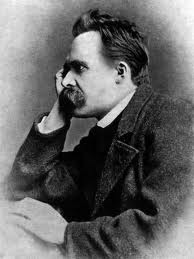
В его отношении к любви четко прослеживается поляризация мужского и женского начала, постоянная «война полов» в любовных отношениях. «Любовь в своих средствах война, в своей основе – смертельная ненависть полов» [10]. Для Ницше любовь – это прежде всего выражение стремления к господству, всеобщего желания власти, обладания. Это отношение применимо ко всем объектам любви, вплоть до природы. «Наша любовь к ближним – разве она не стремление к новой собственности, и равным образом наша любовь к знанию, к истине? Но яснее всего выдает себя как стремление к собственности любовь полов: любящий хочет безусловного и единичного обладания вожделенной особою, он хочет столь же безудержной власти над ее душой, как и над ее телом, он хочет один быть любимым и жить и властвовать в чужой душе как нечто высшее и достойное желания» [11]. В рассмотрении любви как отношения власти, основанного на господстве маскулинного субъекта, ницшеанская традиция изначально предполагает подчиненное положение женщины, ее поражение в «войне полов», что определено самой историей цивилизации, вторичное место в социуме, который и является ее подлинным Господином, принимая ту или иную форму Носителя власти в зависимости от культурных доминант эпохи. «Как бы высоко женщины не почитали своих мужей, они еще более почитают признанные обществом силы и представления; они в течение тысячелетий привыкли выступать перед всякой властью, согнувшись, со сложенными на груди руками и порицают всякое восстание против общественной власти» [12]. Эта роль стала настолько привычной для женщины, что даже доставляет ей наслаждение и (временами) ощущение своего господства, пусть и временного. «Не способная соревноваться с мужчиной за доминацию, женщина достигает власти, желая своего подчинения» [13]. Такая ситуация неизбежно создает напряжение, выражающееся в «войне полов», недаром к любовным отношениям так часто применяют метафоры, связанные с войной (покорить сердце возлюбленной/возлюбленного, одержать победу, «властелин» сердца и т.д.). Таким образом, власть и подчинение проявляются в любви в двух формах. Мы видим концепцию любви как желания обладать другим, которое выходит за пределы сексуального вожделения… Этому образу эмоциональной тирании противостоит концепция любви как почитания и послушания. Она является точным ответом на тираническое господство. Дилемма любовных отношений в повседневной жизни находит множество компромиссов, а в области репрезентации, в пространстве дискурса (которому мы и обратимся ниже) выявляются все сложности столь противоречивого отношения.
Динамика отношения «господство/подчинение»:
по направлению к посткультуре
Идеи любви как отношения господства/подчинения пронизывали все дискурсивное пространство западной цивилизации вплоть до конца ХХ века, когда наступление феминизма и постмодернизма с его акцентом на деконструкцию оппозиций изменили порядок дискурса, хотя и не окончательно. В разные историко-культурные эпохи соотношение элементов этой оппозиции менялось вплоть до реверсирования. Выделение определенных исторических периодов является, несомненно, весьма условным – «не существует четкой линии, разделяющей исторические эпохи, ни в тотальности реальной жизни, ни в ее семантической обработке», − пишет Н.Луман в своем исследовании изменения семантики любовных отношений в различное время [14]. Тем не менее, даже условно выделенные исторические периоды дают нам возможность понять как смену отношения в обществе к культурным явлениям и текстам, так и разницу в способе репрезентации. «Явные различия действительно существуют, − пишет Н.Луман, − которые, как только они утвердились, придают вещам прошлого новую ценность и делают вещи из будущего доступными новыми способами» [15]. Проблема смыслового наполнения культурного текста в последующие его созданию эпохи давно привлекает философов, искусствоведов и культурологов, давая различные ответы на вопрос соотношения текста и контекста. Н.Хренов в своем анализе искусствоведческого и культурологического подхода к художественному тексту ссылается на М.Бахтина, утверждавшего, что «…великие произведения готовятся веками. В эпоху их создания снимаются лишь зрелые плоды длительного и сложного процесса созревания. Условия времени создания произведения еще не позволяют проникнуть в его суть. Так формулируется проблема «большого времени», в котором существует произведение» [16]. Каждое произведение, таким образом, несет на себе груз предыдущих смыслов, приобретая в то же время те, которые соответствуют бытию произведения «здесь-и-сейчас», становясь, по определению Ю.Кристевой, интертекстом. В этих условиях оппозиция господства/подчинения как основа отношений любви проходит ряд трансформаций, обусловленных различием дискурсивных формаций, сохраняя при этом свой бинаризм, что мы покажем ниже на двух примерах движения текста по различным контекстам.
В связи с утверждением бинаризма властных отношений в любви возникает вопрос о судьбе бинарных оппозиций в культуре постмодернизма, который постулирует их деконструкцию и рассеивание по ризомообразному пространству посткультуры [17]. Пост-постмодернистская культура, в которой мы оказались в начале ХХI века, казалось бы, сняла жесткость традиционных бинаризмов, заменив их ризомообразным пространством сосуществования гетерогенных феноменов. Исследователи отмечают, что постмодернизм принес не только тотальную плюрализацию культуры, но и новое ощущение как внешнего мира, так и сферы человеческих чувств и переживаний. «В важном сегменте нашей культуры произошел значительный сдвиг в чувствах, практиках и дискурсивных формациях, который отличает постмодернистский набор предположений, ощущений и допущений от предыдущего периода [18].
Как бы ни относились мы к посткультуре и к постмодернистским влияниям на культуру в целом, можно сказать, что наше время, начало ХХI века, является эпохой переходной, лиминальной, в которой соседствуют самые разные явления, тексты, дискурсы. Лиминальные периоды в культуре характеризуются тем, что «ритуальный субъект спорен: он проходит через область культуры, в которой мало или вообще не существует атрибутов прошлого или будущего состояния… характеристики лиминальности или лиминальной личности всегда расплывчаты, поскольку это состояние и эти личности ускальзывают от системы классификаций, которая, как правило, определяет их место и позицию в культурном пространстве» [19]. Такое состояние культуры неизбежно ведет к многообразию интерпретаций, к переосмыслению традиционных понятий, к соседству разных представлений, выработанных в иные времена, о таких антропологически универсальных феноменах, как власть и любовь. Контекст сегодняшних дней настолько неоднозначен, что отдельные его фрагменты нуждаются в исторических подтверждениях, ищут опору в прошлом, создавая ту почву, которой они лишены в безграничном интертексте постмодернистской культуры. Н.Хренов обозначает этот феномен как «интенсивное извлечение из исторической памяти многих, часто забытых явлений, перекликающихся с современностью. Трудно интерпретировать, но нужно. Иначе все сводится к соотнесенности конкретных произведений с явлениями удаленных эпох. Дальше принципа интертекста ничего не просматривается» [20]. Поиски ответов на вызовы времени в прошлом приводят в посткультуре не столько к переосмыслению «вечных проблем», сколько к постмодернистской игре с историей, которая сама предстает в виде мало связанных фрагментов, вводимых в культурные практики по причуде «производителя» текста (художника, режиссера, писателя – любого «культурного производителя») или служат основой для нарратива, уже не претендующего ни на какое новаторство. Многочисленные версии извлеченных из кладовых памяти текстов, сюжетов и образов не претендуют на глубину мысли, скользя по «тысяче поверхностей» (термин Ж.Делеза и Ф.Гваттари) посткультуры. «Мы находимся в состоянии лицедейства и не способны ни на что, кроме как заново разыграть спектакль по некогда написанному в действительности или в воображении сценарию, − сокрушается Ж.Бодрийяр по поводу состояния культуры в наши дни. − …Мы живем в постоянном воспроизведении идеалов, фантазмов, образов, мечтаний, которые уже присутствуют рядом с нами и которые нам, в нашей роковой безучастности, необходимо возрождать снова и снова» [21].
Любовь и власть в пространстве репрезентации: странствия Дон Жуана по культурным эпохам
Говоря о проблеме репрезентации «вечного сюжета» или архетипичного образа в посткультуре, необходимо обратить внимание на размытость эстетических представлений и ценностей, которая делает возможной бесконечное множество интерпретаций в одном культурном пространстве, что качественно отлично от способов означивания в другие эпохи, когда их основой были базовые культурные доминанты. Сегодня, как показывает Ж.Бодрийяр, «…нет больше ни основного правила, ни критерия суждения, ни наслаждения. Сегодня в области эстетики уже не существует Бога, способного распознать своих подданных… Произведения искусства … не обладают той тайной сопричастности, которая составляет силу культуры. Мы их уже не читаем, а лишь расшифровываем – по все более противоречивым ключам» [22].
Любовь как властное отношение представлена в самых разных видах дискурса, к некоторым из которых (в частности, философскому) мы уже обращались. Но наиболее ярко различные типы власти и подчинения в любовных отношениях и их обусловленность социокультурным контекстом представлены в текстах художественной культуры. Мы выбрали пример, который хорошо известен и пользуется до сих пор громадной популярностью у «культурных производителей» − Дон Жуана. Этот образ интересен нам также и потому, что коренится в мифологических архетипах, воплощается в литературном дискурсе, а затем становится объектом многочисленных репрезентаций в сценических и кинематографических жанрах. Для понимания того, как в культурных текстах, принадлежащих к различным эпохам, но широко представленными в самых разных интерпретациях, в том числе и посткультурных, осмысливается суть любви как отношения власти мы рассмотрим сюжет о Дон Жуане в различных репрезентациях в различных контекстах и попытаемся прояснить, что изменилось в любовных отношениях с точки зрения господства/подчинения, какие из форм этой оппозиции превалируют в ту или иную эпоху, как контекст определяет смысл отношения. Дон Жуан воплощает вечную власть мужчины над женщинами, которая ставится под вопрос в эпоху посткультуры и феминизации всех ее областей. Тем не менее, севильский соблазнитель продолжает притягивать к себе, совершая бесконечное путешествие по контекстам, которые и определяют важность той или иной стороны его характера, а также демонстрируют отношение социума к вечной проблемы любви и власти.
Мы обратимся не только к литературному дискурсу, но и к опере, благодаря которой и стали столь популярны эти персонажи. Оперный спектакль представляет собой сочетание различных способов репрезентации, как вербальных, так и невербальных. Несмотря на важность чисто музыкальной составляющей, в опере всегда присутствует дискурсивный элемент в форме либретто, часто связанного с литературным источником. Опера является культурной формой, где репрезентации любовных отношений как отношений власти играют очень важную роль, становясь одним из аспектов социального дискурса своего времени. Во-первых, это происходит потому, что в опере обязательно присутствует нарративный элемент, в котором высказывания героев гораздо более подробно развернуты даже по сравнению с театральными монологами. Во-вторых, эмотивная составляющая дискурсивных элементов усилена музыкой, которая, хотя и не является вербальным высказыванием, но составляет важнейшую часть семиотического кода. Мы осознаем, что соотнесение оперы с социальным дискурсом весьма условно, поскольку условна и ее дискурсивная составляющая в форме либретто, которое чаше всего служит лишь основой для демонстрации вокального мастерства. Но в то же время во многих операх (в частности, у Моцарта) нарративная линия поддерживается речитативами. Таким образом, можно признать, что мы имеем дело со специфической дискурсивной формацией, сомневаться в важности которой столь же безосновательно, как отрицать принадлежность к социальному дискурсу своей эпохи поэм Гомера или индийских эпических поэм на том основании, что они читались нараспев.
Опера как дискурсивное пространство специфична − с одной стороны, она в корне отличается от рефлексивных форм дискурса (философского, в некоторой степени литературного), с другой – модели властных отношений в любви становятся более выразительными, музыкальный элемент приходит на помощь вербальному, чтобы весь драматизм этих отношений обрел наибольшую выразительность. Важным является и имманентный эротизм музыки как пространства означивания, что усиливает все нюансы противоречивых и динамичных силовых полей в любви/власти.
Величие архетипичных образов в том, что каждая эпоха может «вычитывать» в них то, что близко ей по духу, но при этом вовсе не обязательны эксперименты с формой, которые бывают скорее неудачными и отвлекают от постижения внутренней сути образов и человеческих отношений. «Окруженный всеми ими, само средоточие драмы – Дон Жуан, загадочный, пленительный и отталкивающий. В его адрес немало задано вопросов, а ответов, достойных внимания, сыщется не так много», − пишет известный итальянский оперный певец Тито Гобби о «Дон Жуане» [23].
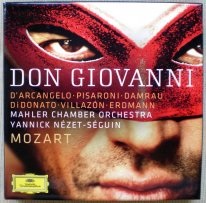
Дон Жуан представлен в громадном количестве литературных и драматических текстов, причем каждая эпоха видит в нем нечто, близкое ей по духу. Севильский соблазнитель представляет собой зыбкую фигуру, перемещающуюся из одной эпохи в другую, из одного вида искусства в другой, привлекающую к себе Байрона и Пушкина, Моцарта и Даргомыжского. Причина постоянного возвращения к Дон Жуану и бесконечное количество интерпретаций − в его харизматической власти над женщинами, которая носит универсальный характер и может быть легко перемещена в разные социокультурные контексты. Суть образа Дон Жуана, который на сегодняшний день наиболее известен благодаря опере Моцарта, стала предметом размышлений музыкального директора Оперы Лос-Анжелеса оперы Дж. Конлона в интервью, данном по случаю постановки «Дон Жуана» Петером Штайном в 2012 г. «Дон Жуан, несомненно, порочен, но если бы он был только порочен, он не был бы нам интересен… Он не насильник, он – соблазнитель, и его гениальность в том, что он находит то, что привлекает ту или иную женщину… Дон Жуан должен быть для нас загадочным персонажем, и он должен быть привлекательным, для любой женщины и для любого мужчины, который тоже хотел бы быть Дон Жуаном. Если в нем нет этой власти над людьми, то образ не работает» [24].
Но именно эта универсальность образа таит в себе опасность его механического перемещения в другие контексты и, соответственно, в другие дискурсивные формации. Само понятие соблазна трансформируется в период «поздней современности». Согласно Э.Гидденсу, «обольщение вышло из употребления» после заката пре-модернистских культур, утратив «многое из своего значения в обществе, в котором женщины стали гораздо более сексуально доступными для мужчин, чем когда бы то ни было прежде, хотя – и это носит решающий характер – и более равными им» [25]. В этом контексте харизматическое господство, казалось бы, должно проявляться исключительно в сфере интимных отношений, не распространяясь на другие сферы жизни. Тем не менее, даже если сюжет Дон Жуана переносится на современную жизнь, женщина, давно вкусившая все завоевания феминизма, хотя бы на какое-то время оказывается в роли добровольной жертвы. Выход из положения подчинения означает выход из состояния очарования, в которое она введена харизматической личностью.
Первичный контекст появления образа Дон Жуана, как и многих других героев «вечных сюжетов», весьма неясен. Если рассматривать Дон Жуана как контекстуально обусловленный образ, мы можем соотнести его, прежде всего, с эпохой барокко, в которой появилась известная пьеса Тирсо де Молина «Севильский распутник и каменный гость». В ней Дон Жуан — соблазнитель, которого не столько влечет наслаждение, сколько борьба за подчинение женщины его воле. Но история Дон Жуана – далеко не единственный любовный сюжет того времени – напротив, он становится частью все более расширяющегося дискурса любви, занимавшего весьма важное место в социальном дискурсе ХVII – ХVIII века. Общий фон эротизма эпохи обуславливает и невероятное количество побед Дон Жуана, объясняя, почему женщины так легко поддавались соблазну харизматической власти героя. Э.Фукс в своем исследовании нравов Галантного века пишет, основываясь на большом количестве документов, о беспредельном увлечении каждой женщины культом галантности: «…никогда женщины до такой степени не были помешаны на мужчинах, как тогда» [26]. В этих условиях при отточенном, как у Дон Жуана, до совершенства искусстве соблазнять, перечень его побед уже не представляется чем-то гипертрофированным.
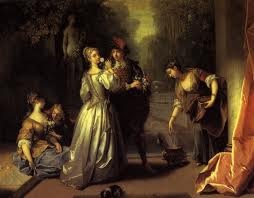
В ХVIII веке, окрашенном рокайльной изысканностью и сентиментальностью, с одной стороны, и идеями Просвещения, с другой, все большее значение приобретает идея индивидуальной свободы и, соответственно, сопротивления безусловной власти маскулинного субъекта. В «Дон Жуане» Моцарта, пожалуй, наиболее известной в наше время версии этого сюжета, герой теряет безусловную власть, даже простушка Церлина лишь на мгновение поддается его обаянию, предпочтя своего простоватого, но надежного жениха. В контексте Галантного века Дон Жуан – фигура, воплощающая идеи либертинажа, столь распространенные среди аристократических кругов общества. Недаром в одной из ключевых сцен оперы Моцарта герой провозглашает: «Viva la liberta!», и ему вторят остальные персонажи.
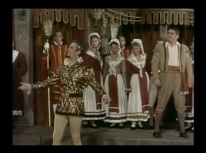
Но эти идеи применимы только к мужским персонажам, поскольку женщины становятся жертвой свободы любовного чувства, подобно страстно влюбленной в Дон Жуана Эльвире, которая постоянно становится объектом насмешек, но власть любви настолько сильна, что подчиняет себе все ее существование. Противоречивость любовных отношений в этом контексте подчеркивается якобы реверсированием ролей господина и подчиненного, когда мужчина провозглашает женщину «властительницей своего сердца», придавая ей тем самым значимость и видимость победы в любовной схватке. После этого все возвращается на круги своя, и Дон Жуан стремится к новым победам, нимало не заботясь о судьбе покоренных им женщин.
За пределами Галантного века из разнообразных трактовок Дон Жуана с точки зрения осмысления этого образа можно привести два крайних суждения, которые, будучи противоположны, тем не менее, становятся основой для равно убедительных сценических репрезентаций. Сравнивая различные дискурсивные формации, мы видим, что каждая из них своими средствами пытается найти те смыслы, которые делают образ севильского соблазнителя столь привлекательным для репрезентации. В эпоху романтизма, столь близкую по времени к эпохе Моцарта, Дон Жуан становится одним из любимых персонажей романтического дискурса. Романтик не может демонстрировать власть над женщиной, скорее, он покоряется ей, выказывая подчинение, которое Э.Гидденс считает лишь жестом с его стороны. «...романтик не может обращаться с женщиной, как с равной себе. Он пленяется конкретной женщиной (или, может быть, последовательно несколькими) и будет выстраивать вокруг нее свою жизнь; но его подчинение – это не жест равенства» [27]. Очень показательна в этом смысле трактовка образа Дон Жуана великим романтиком Э.Т.А.Гофманом. Он выделяет в творении Моцарта романтический элемент, который еще только брезжит в этом великом творении, не выходящим за рамки предписанной временем формы, но содержащим новые настроения. Соответственно, главным в герое становится не его безудержный гедонизм, а «другость», невозможность вписаться в рамки социальных условностей, выход из которых он видит в бесконечных победах над женщинами. Он использует тот дар, который ему дала природа, и дар этот несет в себе гибель не только несчастных брошенных возлюбленных, но и его самого. «Так и кажется, будто он владеет магическими чарами гремучей змеи; так и кажется, что женщины, на которых он бросил взгляд, навсегда обречены ему и, покорствуя недоброй силе, стремятся навстречу собственной погибели» [28]. Власть над женщинами становится чисто харизматической и отвечает новой потребности эпохи не столько в чувственном возбуждении, сколько в мрачной привлекательности непонятого героя.
Одна из самых известных философских интерпретаций образа Дон Жуана содержится в работе А. Камю «Абсурдный человек». Французский философ-экзистенциалист говорит о радости жизни как об основной стороне характера Дон Жуана. «Смех и победоносная дерзость, прыжки из окон и любовь к театру – все это ясно и радостно. Всякое здоровое существо стремится к приумножению. Таков и Дон Жуан. Кроме того, печальными бывают по двум причинам: либо по незнанию, либо из-за несбыточности надежд. Дон Жуан все знает и ни на что не надеется» [29]. Дон Жуан для Камю – образец абсурдного человека, который «ничего не предпринимает ради вечности и не отрицает этого» [30]. Со свойственной абсурдному человеку неверием в глубокий смысл вещей Дон Жуан идет по жизни, не оглядываясь на прошлое и живя тем чувством, которое поглощает его в данный момент. «Абсурдному человеку свойственно неверие в глубокий смысл вещей. Он пробегает по ним, собирает урожай жарких и восхитительных образов, а потом его сжигает. Время – его спутник, абсурдный человек не отделяет себя от времени» [31].
В постановках «Дон Жуана», одной из самых востребованных опер на мировой сцене, в наши дни мы можем видеть характерный для посткультуры коллаж фрагментов из самых разных эпох и стилей, но главными тенденциями являются аутентичность, воссоздание контекста, пусть и условное, и модернизация, где режиссер переносит действие в современность, подчеркивая этим вневременной, универсальный характер как главного героя, так и отношений любви и власти, представленных в сюжете. Во многих случаях характерное для посткультуры скольжение по «тысяче поверхностей» приобретает характер чисто механической модернизации персонажей, одетых в офисные костюмы или что-то условно современное, при этом предполагается, что таким образом классическое произведение «приблизится» к современному зрителю/слушателю. Но если все же придерживаться каких-то критериев в репрезентации культурного текста, относящегося к иной исторической эпохе, то в постановках, отвечающих высоким эстетическим (не говоря о музыкальных, что представляется само собой разумеющимся) требованиям, можно выделить несколько трактовок, которые соответствуют тем рефлексивным направлениям, о которых мы говорили выше. В качестве иллюстрации позволим себе привести три примера, три версии оперы, которые, на наш взгляд, являются блестящими, хотя и совершенно различными интерпретациями «Дон Жуана» − это легендарная постановка шедевра Моцарта на Зальцбургском фестивале 1954 г. (реж. Герберт Граф, Пол Циннер), постановка Ф.Замбелло (Ковент Гарден, 2002 и 2008) и спектакль Ф. Дзефирелли на «Арена ди Верона» в 2012 г. Эти спектакли разделяют десятилетия, что неизбежно сказывается на их стилистике, на манере исполнителей, на темпе и динамике оркестра, хотя они воссоздают контекст эпохи (в данном случае, эпохи наибольшей популярности литературного персонажа, т.е. ХVII века, что подчеркивается костюмами и сценографией). Две из этих постановок можно сопоставить по близости к пониманию образа главного героя, выраженному в приведенных нами концепциях А.Камю и Э.Т.А.Гофмана, причем и ту, и другую можно отнести к «аутентичной» постановочной традиции. Третья (поставленная известной своими феминистическими взглядами Ф.Замбелло) являет собой, на наш взгляд, пример постмодернистской деконструкции и демифологизации образа героя.
В зальцбургском спектакле, приобретшем статус классики, во многом благодаря дирижерскому мастерству В.Фуртвенглера, образ Дон Жуана создает Чезаре Сьепи, один из лучших исполнителей этой роли в ХХ веке, герой исполнен радости и полноты жизни, о которых писал А.Камю.

Все его приключения и похождения – результат избытка жизненной энергии и широты натуры, которая нуждается в новых впечатлениях и получает от них искренне удовольствие. Препятствия воспринимаются им как досадное недоразумение, которое легко преодолеть, и когда он наталкивается на непреодолимость воли Командора, его охватывает не столько страх, сколько раздражение от того, что он перестает владеть ситуацией. Финал, при всей его интенсивности, не несет в себе роковой развязки судьбы, избранной по своей воле и ведущей к неминуемому, скорее, это неблагоприятное для героя стечение обстоятельств. Чезаре Сьепи абсолютно убедителен в своем неприкрытом гедонизме, готовности отдаваться всем своим увлечениям и радостному шествию по жизни, которое прерывается неудачным для него стечением обстоятельств.
Противоположная, но не менее убедительная интерпретация образа севильского соблазнителя создана Франко Дзефирелли и Ильдебрандо Д’Арканджело, одним из самых известных исполнителей этой роли в наши дни, в уже упомянутом спектакле Арена ди Верона [32].
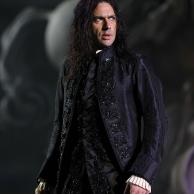
Образ Дон Жуана может показаться мрачным и деструктивным, но в тоже время он вполне соответствует представлениям о романтическом герое − он как будто сошел со страниц Гофмана, описывающего совершенно другую эпоху: «Одна из дам заметила, что ей пришелся совсем не по вкусу Дон Жуан: слишком уж итальянец был мрачен, слишком уж серьезен и вообще недостаточно легко подошел к игривому и ветреному образу героя» [33]. Герой Д’Арканджело живет в экзистенциальном вакууме (по терминологии В.Франкла), о чем говорит и сам исполнитель, который посвятил созданию этого образа всю свою творческую жизнь, пройдя через самые разные трактовки. «Лично мне сегодня Дон Жуан представляется персонажем, старающимся заглушить внутреннюю пустоту. То исступление, с которым он ищет внимания женщин, то неистовство, с которым он обольщает их, – это попытка убежать от самого себя. Я думаю, что Дон Жуан есть в каждом из нас. Нужно лишь разобраться, в какой форме он в нас проявляется» [34]. Универсальность образа в данном случае не подчеркивается его внешней модернизацией – напротив, все события, приобретающие характер драматического нарратива, развертываются на фоне нарочито преувеличенной и драматизированной барочной роскоши. В обеих постановках воссоздается контекст эпохи, в которой отношения героя и его окружения обусловлены культурными доминантами своего времени
Другое прочтение Дон Жуана как демифологизированного персонажа, лишенного как экзистенциальной жажды жизни и радости от очередной победы, так и стереотипной внешности героя-любовника (хотя и не своеобразной харизмы) дает Франческа Замбелло в постановке театра Ковент Гарден (2002, 2008 гг.).
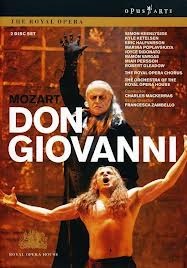
В этой версии нет никаких внешних примет современности, коими грешат многие постановки классики. Напротив, костюмы и парики персонажей оперы содержат намек на барочно-рокайльную эпоху, а минималистская сценография подчеркивает цветовую гамму, очень четко разграничивающую персонажей по их месту в социальной структуре, эксплицитно подчеркнутой режиссером. Дон Джованни одет в пламенеюще-красный и пурпурный, так же как его слуги и музыканты, Лепорелло − в сероватые тона, кроме сцены переодевания, где он тоже предстает в красном и пурпурном. Аристократы (донна Анна, дон Оттавио и донна Эльвира) предстают в темно-синем или бирюзовом, благородный Командор показан в черно-белом, а в финале − в серебристом. Вся толпа крестьян − в белом, скорее бесцветном. Намеренное дистанцирование от примет сегодняшнего дня помогает более остро ощутить универсализм проблем этого «бродячего» сюжета, которые не преодолены и в посткультуре, скорее впитавшей в себя все сложности цивилизации, чем решившей ее проблемы или хотя бы внятно их объяснившей. Что касается главного героя в блестящем исполнении Саймона Кинлисайда, в творческой карьере которого насчитываются самые разные варианты Дон Жуана, он предстает абсолютно лишенным какого-то романтического флера или радости и полноты жизни. Перед зрителем/слушателем − абсолютно циничный и многоопытный представитель аристократии, уже ощущающей свою обреченность.
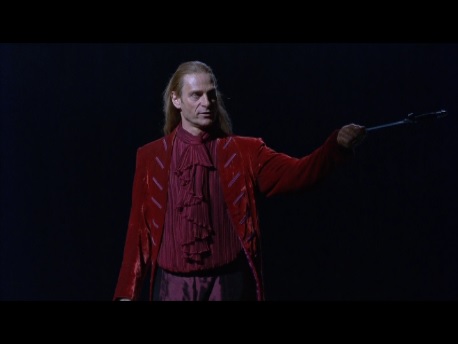
Дон Жуан в трактовке Франчески Замбелло, известной своими феминистическими взглядами, − символ исчерпанности аристократической культуры, с одной стороны, и окончания эпохи маскулинной доминации, − с другой. Острые социальные акценты выражают не столько стремление к исторической реконструкции переходной эпохи, сколько выражение посткультурной лиминальности и плюрализма, где позиции разных групп подвижны и зачастую непредсказуемы. Состояние героев в этой версии «Дона Джованни» также неустойчиво, хотя социальные позиции четко определены, но не фиксированы и содержат в себе потенциал перехода из одного состояния в другое, как это постоянно происходит в случае с Лепорелло. Принцип свободы, который Дон Джованни провозглашает на своем балу, чувствуя себя хотя бы на время уверенно, на своей территории, сталкивается с агрессивной реакцией Мазетто, человека грядущего мира, которому суждено вскоре провозгласить новые идеалы Свободы всему миру. С точки зрения социального и гендерного позиционирования героев постановка Ф.Замбелло вовсе не является примером постмодернистского размывания бинаризмов, скорее, наоборот. Дон Жуан находится в четких взаимоотношениях со всеми персонажами, напоминающими своей определенностью во времени и пространстве героев театра марионеток (в котором постановки «Дон Жуана» являются востребованными по сей день). Герой Саймона Кинлисайда уверен в своем праве поступать по внезапно возникающей прихоти, у него даже не возникает сомнений в этом праве, а неудачи воспринимаются как досадные помехи, которые надо так или иначе обойти. Ироничность подхода к образу Дон Жуана основана не только на субъективном подходе режиссера, но и на амбивалентности текста оперы, который дает возможность отнестись к нему как с полной серьезностью, так и с юмором или, в данном случае, с постмодернистской иронией. Как известно, жанр оперы был определен композитором как drama giocoso («веселая драма»). Остроумие текста Л. да Понте в сочетании с великолепной музыкой привносят сочетание «юмора и трагедии... в мрачную историю серийного соблазнителя, которому удается избежать любого наказания, кроме смерти» [35]. Подчеркивая комический элемент оперы, Ф.Замбелло, с одной стороны, вполне закономерно сближает ее с традицией opera buffa, с другой, прибегает к деконструкции мифологических и романтических представлений о севильском соблазнителе. Дон Жуан Саймона Кинлисайда одержим «сексуальным голодом: его жестокость к соперникам-мужчинам так же патологична, как и к покоренным им женщинам, он является воплощением отвратительной негативности. Раздетый в последней сцене, он представляет собой жалкую фигуру, но в голосе все еще слышится злобная властность» [36]. Такое унижение героя может рассматриваться и как деконструкция традиционного образа эротической неотразимости, и как «символическое уничтожение мужчины», предпринятое режиссером с феминистскими взглядами в ответ на многочисленные «символические уничтожения женщины» как в традиционной, так и в популярной культуре. Идея Э.Гидденса об исчерпанности соблазна реализуется в полной механистичности подхода Дона Джованни к женщинам, в нарочитой искусственности приемов и в раздражении от необходимости продолжать игру в соблазнение. Расчетливость героя, основанная на его мизогинизме, кажется как «убедительно седуктивной, так и холодно угрожающей» [37].
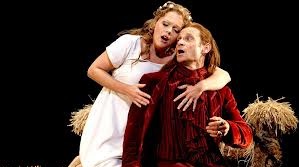
Деконструкция романтического образа Дон Жуана идет по всем направлениям. Внешне герой Саймона Кинлисайда представляет полную противоположность стереотипному представлению об испанском гранде с горящими черными глазами − бесцветность внешности только подчеркивается алым цветом костюма, как будто предназначенного совсем другому герою, а скучающе-циничное выражение лица показывает равнодушие персонажа к своим «жертвам» и полное презрение к тем, кто стоит ниже его на социальной лестнице. Код поведения тоже нарушен − Дон Джованни убивает Командора не в поединке, а подло, кинжалом, а потом цинично смеется в лицо умирающему. Казалось бы, что может быть привлекательного в таком (анти)герое? В единственной сцене оперы, где Дон Джованни демонстрирует свои способности соблазнения, − в сцене с Церлиной − на первый план выступает вовсе не чувственная привлекательность или эротизм, а совершенно неприкрытый расчет девушки на повышение своего социального положения.
Церлина − персонаж неоднозначный, как и Лепорелло: это маргиналы, стремящиеся к повышению статуса и в то же время не готовые разорвать существующие связи. В случае с Церлиной это переходное положение особенно ясно, она «хочет и не хочет» ответить на ухаживания знатного господина. «В образе Церлины живет ритм рококо и революции. Она уже не пастушка, но еще не citoyenne. Она относится к мгновению, промежуточному между ними, и в ней мимолетно возникает человечность, не искаженная феодальным принуждением и защищенная от буржуазного варварства» [38]. Хотя прямого принуждения от знатного господина Церлина и не испытывает, поскольку ему нужно добровольное согласие девушки, она готова забыть своего жениха ради соблазнов аристократической жизни, представленных в виде кофе, шоколада, вина, музыки и танцев. Как только она сталкивается с прямым посягательством на ее любовь, девушка в ужасе бежит от Дона Джованни, находя утешение в объятьях Мазетто, исполненного праведного гнева и желания отомстить. Дон предстает как «уже наполовину бессильный феодал, лишенный jus primae noctis... он становится вестником наслаждения, что уже несколько смешно горожанам, достаточно быстро лишающим его этого права. У бесстрашного героя они научились своему идеалу свободы. Но, став всеобщим, этот идеал оборачивается против него» [39]. Где же та свобода, которую провозглашают следом за Доном Джованни все его гости? На самом деле, она не нужна никому, кроме него самого − Донна Анна после приличествующего ее положению траура устроится в мирном существовании со скучным, но надежным доном Оттавио, донна Эльвира найдет безопасную гавань в стенах монастыря, Церлина и Мазетто − герои нового мира, чувствуют себя вполне уверенно в своем крестьянско-пролетарском счастье, даже маргинал Лепорелло должен найти нового господина, поскольку не способен к самостоятельному существованию. Свободным остался только сам Дон Жуан, который, несмотря на свою порочность, доходящую до перверсивности, и полное презрение ко всем окружающим, предстает в последней, финальной сцене спектакля как воплощение торжества своих гедонистически-эгоистических принципов − он показан, на мгновение, перед закрытием занавеса обнаженным с обнаженной же девушкой на руках на пламенеющем фоне ада, где он продолжает свое гедонистическое существование. Даже с того света нераскаявшийся грешник смеется над всеми, кто живет согласно нормам и правилам, и в этом последняя шутка героя, живущего исключительно по своим правилам.
Многочисленные модернизированные версии и эксперименты режиссеров с севильским соблазнителем, которыми заполнены сцены современных оперных театров, неизбежно ставят вопрос: в чем же власть Дон Жуана над женщинами, принадлежащими к разным странам, сословиям, возрасту? Возвращаясь к типологии власти, о которой мы писали выше, можно сделать вывод, что наиболее универсальной из них является, во всяком случае, в применении к любовным отношениям, власть харизматическая, которая проявляется и побеждает вне зависимости от контекстов эпохи и ее культурных доминант. Основа этой власти всегда загадочна, харизматичность не зависит ни от внешности, ни от возраста, − притягательность Дон Жуана заключает в себе великую магию власти, вне зависимости от того, где она проявляется – в любовных связях, в политике или в искусстве. Возможно, именно не объясненная до сих пор природа харизматической власти является основой загадочности образа Дон Жуана и причиной бесконечного множества его интерпретаций.
Приведенные нами примеры из области репрезентации одного из важнейших человеческих отношений – любви в его преломлении как отношения власти − показывают, что, несмотря на смену историко-культурных контекстов и дискурсивных формаций, суть этого отношения остается неизменной и проявляется в формах различных художественных практик. В то же время глубокое понимание сути человеческих отношений, извечного противостояния мужчины и женщины возможно при соотнесении того или иного сюжета или образа с контекстом его возникновения, а затем и последующих интерпретаций.
ПРИМЕЧАНИЯ
[1] Статья подготовлена при поддержке РГНФ. Грант № 12-03-00095.
[2] Gilbert P. Human Relationships. Oxford UK-Cambridge USA : W.W. Norton and Company, 1991. P. 41.
[3] См.: Дворкин А. Порнография. Мужчины обладают женщинами // Введение в гендерные исследования. Ч. 2. Харьков-СПб.: ХЦГИ, 2001. С. 203-208.
[4] Там же. С. 202.
[5] Connell B. Hegemonic Masculinity // Gender. A Sociological Reader. L.-N.Y. Cambridge Polity Press, 2002. P. 60.
[6] Gilbert P. Human Relationships. Oxford UK-Cambridge USA: B. Blackwell, 1991. P. 52
[7] Гёте И.В. Из моей жизни. Поэзия и правда // Гёте И.В. Собр. соч. Т. 3. М.: Художественная литература, 1976. С. 157.
[8] Дворкин А. Указ. соч. С. 211.
[9] Элиот П., Менделл Н. Теории феминизма. // Введение в гендерные исследования. Ч. 2. Харьков-СПб.: ХЦГИ, 2001. С. 109.
[10] Ницше Ф. Ecce Homo // Сочинения: В 2 т. Т. 2. М.: Мысль, 1990. С. 727.
[11] Ницше Ф. Веселая наука // Там же. Т. 1. С. 526.
[12] Ницше Ф. Человеческое // Там же. Т. 1. С. 435.
[13] Gilbert P. Op.cit. P. 46.
[14] Luhmann N. Love as Passion. Cambridge-Oxford: Polity Press, 1986. P. 42.
[15] Ibidem.
[16] Хренов Н.А. Кризис искусства XX века: искусствоведческая констатация и культурологическая интерпретация // Филология – искусствознание – культурология: новые водоразделы и перспективы взаимодействия. СПб.: Изд. РХГА, 2009. С. 91.
[17] Данный термин уже вошел в исследовательский дискурс. См. определение В. Бычкова (КорневиЩе ОБ. Книга неклассической эстетики. М.: Изд. ИФ РАН, 1999), а также: Шапинская Е.Н. Культурологический дискурс после постмодернизма // Обсерватория культуры. 2010. №6.
[18] Huyssen A. Mapping the Postmodern // Culture and Society. Contemporary debates. Cambridge: Cambridge University Press, 1995. P. 355.
[19] Turner V. Liminality and Community // Culture and Society. P. 147.
[20] Хренов Н.А. Указ. соч. С. 99.
[21] Бодрийяр Ж. Прозрачность зла. М.: Добросвет, 2009. С. 8.
[22] Там же. С. 24.
[23] Тито Гобби. Мир итальянской оперы. М.: Радуга, 1989. С. 32.
[25] Гидденс Э. Трансформация интимности. Сексуальность, любовь и эротизм в современных обществах. М.-СПб.: Питер, 2004. С. 103.
[26] Фукс Э. Иллюстрированная история нравов. Галантный век. М.: Республика, 1994. С. 249.
[27] Гидденс Э. Указ. соч. С. 81.
[28] Гофман Э.Т.А. Дон Жуан // Гофман Э.Т.А. Собр. соч.: В 6 т. Т. 1. М.: Художественная литература, 1991. С. 84.
[29] Камю А. Бунтующий человек. М.: Изд-во политической литературы, 1990. С. 62.
[30] Там же. С. 60.
[31] Там же. С. 63.
[33] Гофман Э.Т.А. Указ. соч. С. 88.
[35] Riding A., Dunton-Downer L. Opera: L-N.Y.: Penguin, 2006. P. 116.
[38] Адорно Т. Хвала Церлине // Moments musicaux. Статьи 1928-1962 гг. Избранное: Социология музыки. М.- СПб.: Университетская книга, 1999. С. 222.
[39] Там же.
© Шапинская Е.Н., 2014
Статья поступила в редакцию 22 октября 2014 г.
Шапинская Екатерина Николаевна
доктор философских наук, профессор,
начальник Отдела образования в сфере культуры
Российского НИИ культурного и природного
наследия им Д.С. Лихачева.
|

ISSN 2311-3723
Учредитель:
ООО Издательство «Согласие»
Издатель:
Научная ассоциация
исследователей культуры
№ государственной
регистрации ЭЛ № ФС 77 – 56414 от 11.12.2013
Журнал индексируется:

Выходит 4 раза в год только в электронном виде
Номер готовили:
Главный редактор
А.Я. Флиер
Шеф-редактор
Т.В. Глазкова
Руководитель IT-центра
А.В. Лукьянов
Наш баннер:

Наш e-mail:
cultschool@gmail.com
НАШИ ПАРТНЁРЫ:





|



